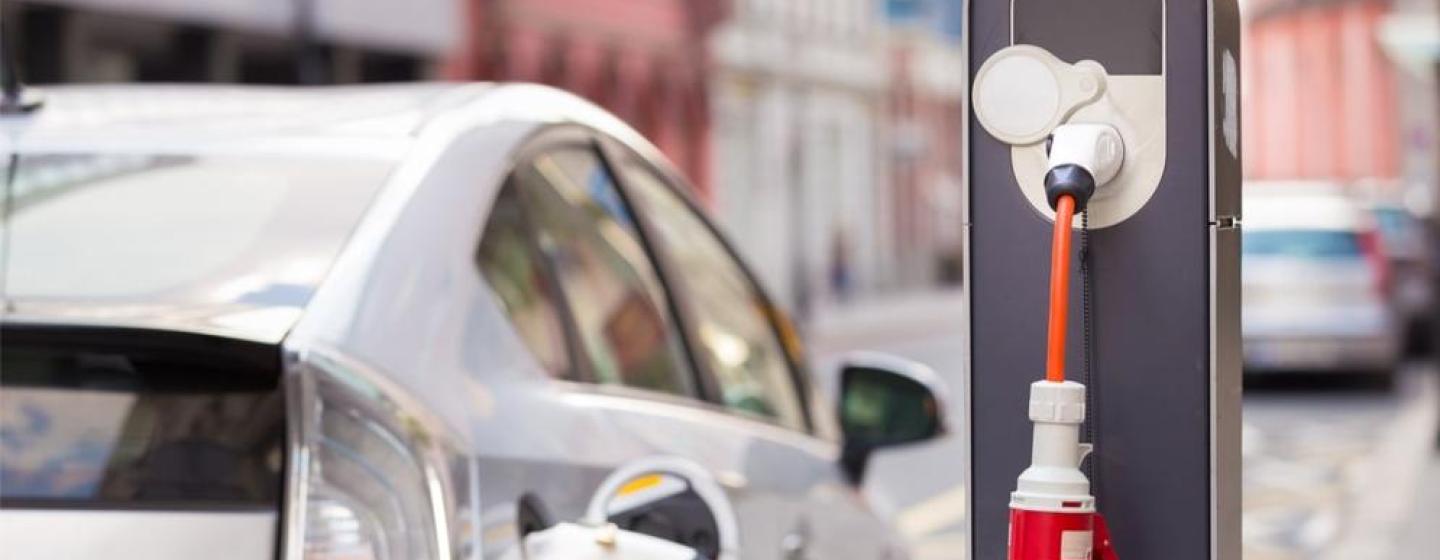
Cheap Hybrid Car Insurance Quotes
Find your cheapest hybrid car insurance quote by comparing quotes from 50+ providers in a single search
Jump straight to:
- What is a hybrid car?
- Types of hybrid cars
- Is hybrid car insurance expensive?
- Are there discounts on hybrid cars?
- Federal discounts on hybrid cars
- Provincial discounts on hybrid cars
- Insurance discounts on hybrid cars
- How to get the cheapest hybrid car insurance quote
- Hybrid car insurance rates
- How to get cheap rates on hybrid car insurance
What is a hybrid car?
Hybrid cars are a type of electric car that has a gas engine and a rechargeable battery. The gas engine fuels the battery through regenerative braking. This process captures the car's kinetic energy when it's in motion.
Hybrid cars differ from all-electric vehicles (EVs), which run solely on battery power. They're typically more affordable than all-electric vehicles, making them the most popular choice for drivers looking to cut their emissions. In 2022, 117,917 battery-operated and plug-in hybrids were registered in Canada, making up 95% of all new electric vehicle registrations in Canada.
Types of hybrid cars
There are currently four types of hybrid electric vehicles in mass production.
Mild hybrids
- Has a gas engine, electric motor, and battery.
- It can’t run on battery power alone.
- The electric motor powers the vehicle's lights, stereo and GPS and provides extra power during acceleration.
- The battery is recharged through regenerative braking.
- The cheapest type of hybrid car available.
Full hybrids
- More powerful than mild hybrids since it can run on electricity alone (for a time).
- There are two types of full hybrid cars; in both, the electric motor is more powerful than the ones outfitted in mild hybrid vehicles.
- Distinguished by the type of powertrain they use (the engine components that move a car forward): parallel and series-parallel powertrains.
- Parallel hybrids: The electric motor powers the car and assists the gas engine during acceleration.
- Series hybrids: The electric motor powers the transmission, and the gas engine charges the battery pack.
Plug-in hybrids (PHEVs)
- Needs to be recharged by being plugged into an outlet.
- Have a larger battery pack than other hybrids.
- It can travel further on electric power before the gas engine takes over.
Range-extended EVs
- Electric vehicles with a small gas engine that extends the car's range when needed; the gas engine charges the battery.
Is hybrid car insurance expensive?
The answer is: maybe. The final cost of your car insurance premium relies on many factors.
First, there's the fact that the more expensive the car, the more likely it will command pricey insurance premiums. Electric vehicles cost, on average, $15,000 more than traditional gas-powered ones.
Pricetag matters because insurance companies keep close tabs on the cost of claims of every car brand and model on the road in Canada, which are catalogued by the Canadian Loss Experience Automobile Rating (CLEAR) system.
Cars with a higher sticker price often require special parts and specialized labour — especially for hybrid and electric vehicles. Keep in mind that the CLEAR database tracks serious repairs, not routine maintenance. In fact, hybrids are often cheaper to maintain than gas-powered cars when it comes to normal wear and tear.
For example, according to the 2022 CLEAR database, collision and comprehensive claims for a 2018 Prius were, respectively, 21% and 59% more expensive than those for a 2018 four-door Corolla.
Benchmarked against the Corolla again, collision and comprehensive claims for a 2018 Model 3 Tesla (a fully electric vehicle) were 34% and 41% more expensive.
Next, driver behaviour matters. As battery life and range improve with electric and hybrid vehicles, more and more people are using them to commute.
However, people who use their car daily to commute via freeways pay higher insurance rates than those who use their vehicle to run errands locally.
Hybrids were initially popular with city dwellers who rarely use their cars, and these drivers will likely save more on car insurance than their counterparts who depend on their cars — but that's not unique to hybrids. People who drive less frequently cost less to insure, regardless of the vehicle type.
Are there discounts on hybrid cars?
Governments have started providing incentives to reduce EV ownership costs and increase adoption. Insurance companies are now following their lead. Here are the discounts available to Canadian hybrid owners.
Federal discounts on hybrids
The Incentives for Zero-Emission Vehicles Program (iZEV) is the government of Canada's incentive program for electric vehicle buyers.
It is funded until 2025 and offers discounts at the point of sale to vehicles on the government's list of eligible vehicles. If yours qualifies, you could get:
- Up to $5,000 off for battery-electric, hydrogen fuel cell and long-range plug-in hybrid vehicles (must have a range of at least 50 km or more).
- Up to $2,500 off for shorter-range plug-in hybrid electric vehicles (range under 50 km).
Discounts are only available to hybrid or EVs with the manufacturer's suggested retail price of $55,000. If you opt for an upgraded trim, the MSRP cannot exceed $65,000.
Provincial discounts on hybrids
Six provinces currently offer incentives for prospective EV and hybrid car owners.
- British Columbia: The B.C. government's Go Electric program provides anywhere from $500 to $2,000 in rebates for plug-in hybrids with a range of less than 85 km. The rebate is based on household income. It also offers up to $4,000 for battery electric and long-range plug-in hybrids.
- Quebec: The province provides rebates of up to $8,000 on EVs under $60,000.
- Newfoundland and Labrador: Drivers of shorter-range plug-in hybrids may receive $2,500, while all-electric and long-range plug-in hybrids can get $5,000 from the government.
- Prince Edward Island: The P.E.I. Universal EV Incentive program provides $5,000 to Islanders who purchase new or used EVs. The government will also offer $2,500 to those who buy a plug-in hybrid and a free Level 2 charger.
- New Brunswick: New EVs and long-range plug-in hybrids can qualify for a $5,000 rebate, while used ones qualify for $2,500 off. Used PHEVs can get $1,000 off. Home charging stations may be eligible for a rebate of $750.
- Nova Scotia: Rebates of $3,000 per new vehicle are available. For used cars, the rebate is $2,000. E-bikes are also included in the program; they qualify for $500 off.
Insurance discounts on hybrid cars
Many insurance companies have yet to add green discounts to their product offerings. Here are some of the discounts currently offered by insurance companies.
- Aviva: Offers 5% off to hybrid drivers, while electric vehicle owners get 10% off through the Hybrid and Electric Vehicle Discount program.
- TD: Offers discounts to hybrid owners through the Green Wheel Discount program.
- CAA: Offers 5% off through their Hybrid Electric and Plug-in Hybrid Electric Discount
- Intact: Offers discounts starting from 5% through its Hybrid and Electric Vehicle Discount program.
How to get the cheapest hybrid car insurance quote
Enter Your Postal Code
Start with your postal code to begin.

Enter Driver Details
Tell us a little bit about your vehicle, driving & car insurance history.

Compare Your Quotes
Compare your car insurance quotes from more than 50 top insurance companies.

Pick Your Policy
Pick the insurance policy that's right for you to connect directly with the insurance professional of your choice.
Hybrid car insurance rates
We ran sample quotes for three different hybrid models to see how they measure up.
These quotes are based on a male driver who owns his car, lives in Ontario, has a full license and a clean driving record, and drives 10,000 km/year. We ran quotes for different ages because age is an significant risk indicator for insurance companies.
They are also the ‘winning quote’ on our site, which is the lowest quote offered to a customer who compares quotes on our site. Without comparing, you could pay more.
Compared to the Ontario average of $1,744, premiums on these particular hybrid vehicles are, on average, 20% cheaper or more beginning at age 30 (drivers in their teens and twenties are surcharged on insurance regardless of the vehicle).
However, your mileage may vary since these are based on a clean driving and insurance history. Being at fault in a collision will adversely affect your rate as this vehicle class costs more than average to repair.
| Age | 2023 Toyota Corolla Hybrid LE | 2023 Hyundai Elantra Luxury Hybrid | 2023 Kia Niro Hybrid |
|---|---|---|---|
| 18 | $3,657 | $3,920 | $5,211 |
| 19 | $ 3,396 | $3,638 | $3,905 |
| 20 | $2,532 | $2,691 | $3,509 |
| 21 | $1,975 | $2,081 | $2,835 |
| 22 | $1,932 | $2,038 | $2,470 |
| 23 | $1,822 | $1,923 | $2,220 |
| 24 | $1,778 | $1,882 | $2,059 |
| 25 | $1,489 | $1,496 | $1,405 |
| 26 | $1,484 | $1,491 | $1,402 |
| 27 | $1,446 | $1,453 | $1,365 |
| 28 | $1,437 | $1,442 | $1,356 |
| 29 | $1,426 | $1,433 | $1,346 |
| 30 | $1,414 | $1,421 | $1,335 |
| 40 | $877 | $884 | $828 |
| 50 | $706 | $710 | $666 |
| 60 | $668 | $674 | $632 |
How to get cheap rates on hybrid car insurance
Compare rates
Rates vary by insurance company. Each one uses slightly different criteria to calculate your insurance rate. For example, InsuranceHotline.com data showed an average $922 difference between an Ontario driver's lowest and highest quote. Comparing insurance companies before you buy a policy can translate into hundreds of dollars in savings.
Choose an insurance company that offers a green discount
Insurers are increasingly offering discounts to hybrid owners. After comparing quotes, our algorithm might automatically match you with a company with a discount program for hybrid vehicles. If not, you'll want to speak with an insurance professional, like a broker, about whether the reductions you could get from an insurance company that offers discounts outweigh going with the company offering your lowest rate through our quote comparison service.
Research hybrid models' crashworthiness
Some hybrid models are built with lighter bodies to improve their mileage.
However, this makes them prone to more physical damage. It can be costly to repair a hybrid car, as it requires specialized parts and labour, both of which have been in short supply since the start of the COVID-19 pandemic.
Researching car models using the Canadian Loss Experience Automobile Rating (CLEAR) data can provide some insight into claims costs for a specific hybrid model.
Also worthwhile could be contrasting CLEAR results with safety ratings from the Insurance Institute for Highway Safety (IIHS).
Brushing up on repair costs to narrow down your candidates and get an insurance quote for each one before you buy. It will prepare you financially for car ownership.
Buy usage-based insurance
Allow your insurer to monitor your driving habits, and they will reward you with a reduced rate, sometimes as much as 25% off the original price.
Bundle your home and auto insurance
You can save anywhere from 5 to 15% off each policy when you bundle your home and car insurance with the same insurance provider.
Maintain a claims and conviction-free driving and insurance history
The surefire way to keep your insurance costs low is to practice safe driving and to limit making claims.











